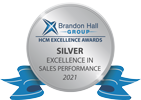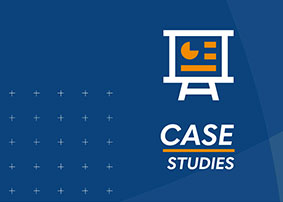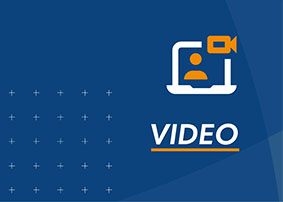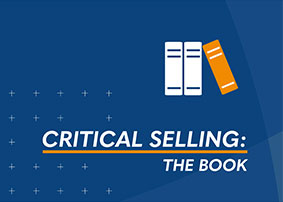Optimizing Sales Enablement for Remote Sellers

Over the last decade, one of the hottest topics in sales has been sales enablement, the process of providing sales professionals with the tools, technology, training, and content to increase productivity and empower them to win. According to Brainshark, companies with sales enablement have a 15 percent higher win rate that those without it. At the same time, another hot topic in sales has been the shift from in-person to virtual selling necessitated by the coronavirus pandemic. As so many sales organizations have had to adjust the ways they do business, it’s imperative that they also optimize their enablement strategy to align with the new ways their sales reps sell. Here are a few tips to help update your sales enablement strategy for remote sellers:
How Sales Processes are Impacted
Central to sales enablement is the sales process. This is a strategic approach to define for sellers how they can identify and win sales through a series of proven activities and coordination of resources. As face-to-face meetings remain out of the question, or highly limited for the foreseeable future, sellers must rely on virtual methods to connect with prospects. This can result in fundamental changes to how many of the activities and stages of a sales process are handled:
- Instead of networking at trade shows and conventions, sales reps must rely on prospecting via online tools
- Instead of giving presentations in person, meetings will now be held via web tools (Zoom, Webex, Google, etc.)
- Instead of overcoming common objections, sales reps will now have to consider new challenges that are the result of recent changes to the marketplace
A Cloud-Based CRM Solution
A major sales enablement component is an organization’s CRM. With more sales teams dispersed, a cloud-based CRM is quickly becoming a necessity. This makes it easy for your data to be accessed in the office as well as remotely from multiple devices, such as a PC, tablet, or phone. This will give your sales reps the greatest flexibility to do their jobs, no matter where they are. These days, it is imperative that reps receive adequate training and support using the CRM, especially when they are tasked with doing so remotely.
Training, Coaching, and Support
Training is an important part of sales enablement, but in addition to the selling skills reps need, such as building a rapport, uncovering needs, and actively listening, the shift to virtual selling now requires sales reps be trained in the technology to both effectively communicate and collaborate. Training and coaching initiatives should focus on the skills used in virtual selling, such as scheduling and moderating video conferences as well as utilizing tools like screen sharing between reps or reps and managers.
In addition, selling remotely creates other challenges new to even the most experienced sales professionals, such as building a personal online brand or leveraging a virtual presence to instill confidence and drive engagement. Targeted training and coaching can overcome such obstacles and enable sales reps to sell online more effectively.
Easy Access to Sales Collateral and Marketing Resources
While case studies, white papers, eBooks, and other collateral is often found on corporate websites, a cloud-based file hosting service, such as Sharepoint or Dropbox, can be an ideal solution to provide anyone within your organization with easy access to all relevant content, including price sheets and other sensitive material that may not be found on your website. Some enhanced platforms take it a step further and build in AI to help deliver the right content at the right time to your reps.
Sales Compensation
Well-designed compensation plans should be revised and updated on a regular basis. This was true even before the pandemic hit. They can be tremendous motivators and drivers of new business and should be closely aligned to business objectives. With uncertainty in the marketplace and much of sales being handled remotely, it’s imperative that sales compensation plans take such circumstances into consideration:
- Have sales goals been adjusted based on an increase or decrease in customer demand?
- Are you prioritizing long-term sales goals over short-term objectives?
- Should a portion of the sales compensation be tied to activities and other leading KPIs?
Today, as so many companies realize the value of sales enablement to help their reps succeed, top organizations must consider the monumental changes to the selling industry that have fundamentally altered the way their sales reps do their jobs. As the process of selling is different, the practices of sales enablement must be updated to align with how reps sell and what they need to be successful. After all, a sales team will be seriously disadvantaged using yesterday’s tools to meet today’s challenges, and as the sales environment shifts, all organizations must adapt to the new reality and provide their reps the tools to prosper in these unprecedented times.

- Account Planning (16)
- Awards (42)
- Client Testimonial (37)
- Personal Branding (21)
- Podcast (12)
- Research (77)
- Sales Career Development (90)
- Sales Coaching (165)
- Sales Consulting (141)
- Sales Culture (181)
- Sales Enablement (380)
- Sales Leadership (112)
- Sales Management (268)
- Sales Negotiation (11)
- Sales Prospecting (136)
- Sales Role-Playing (19)
- Sales Training (242)
- Selling Strategies (279)
- Soft Skills (78)
- Talent Management (101)
- Trusted Advisor (29)
- Virtual Selling (57)
- Webinar (13)




























